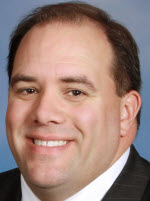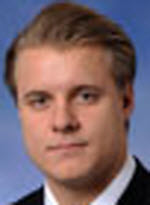Guest column: Incentives can address Michigan's rural doctor shortage
By Rep. Jim Ananich and Rep. Frank Foster
Everyone in Michigan, regardless of where you live or where you’re traveling through, deserves access to basic, primary health care. Unfortunately, a shortage of specially trained doctors and medical professionals in some areas provides a costly barrier for too many families. Recent coverage in Bridge rightly pointed out this growing concern, and it is an issue that lawmakers on both sides of the aisle are working to address.
One of the ways we can ensure adequate access is by providing incentives for those specializing in primary care to work in underserved areas of Michigan. Increasing student debt for new doctors, combined with the lure of specialties and locales that can be more profitable, create a roadblock for many who might otherwise be willing to serve these communities.
That is why a bipartisan group of legislators from across the state recently proposed a new Frontline Health Provider Program. The plan creates scholarships and loan repayments for health professionals in high need areas, such as primary care, family medicine, and pediatrics, among others.
Participants would be required to serve in Michiganin underserved areas for several years to satisfy the objectives of the program. The Department of Community Health, in consultation with local community health experts and national data, will determine which professions among those eligible are the most urgent priority, and which locations are most in need.
The advantages of investing in this type of approach are numerous. It allows for addressing immediate needs through loan repayments, which has the added benefit of attracting highly skilled workers. Also, through scholarships, it tackles a longer term concern of the impending retirement of many current physicians and the decreasing number of students choosing to serve in primary care.
The plan also would help make health care more cost effective by reducing the reliance on emergency room visits in many communities.
The most successful effort will include a comprehensive strategy, but we believe this plan should be a part of it. And we are not alone. A number of health-care organizations and advocates have offered their feedback and support.
Former Congressman Dr. Joe Schwarz has long championed a more aggressive effort in this area. Gov. Rick Snyder acknowledged the impending shortage in his special message on health care. And states from Minnesota to Mississippi have successfully used scholarship and loan repayment programs to address their own needs.
Legislation was recently introduced inMichigan’s House of Representatives (HB 5770, HB 5771, HB 5772, HB 5773), and related bills are expected to be offered in the Senate soon. It is our hope that lawmakers, health-care professionals and local stakeholders can continue to work together diligently on securing the care and talented workforce every community deserves.
See what new members are saying about why they donated to Bridge Michigan:
- “In order for this information to be accurate and unbiased it must be underwritten by its readers, not by special interests.” - Larry S.
- “Not many other media sources report on the topics Bridge does.” - Susan B.
- “Your journalism is outstanding and rare these days.” - Mark S.
If you want to ensure the future of nonpartisan, nonprofit Michigan journalism, please become a member today. You, too, will be asked why you donated and maybe we'll feature your quote next time!



